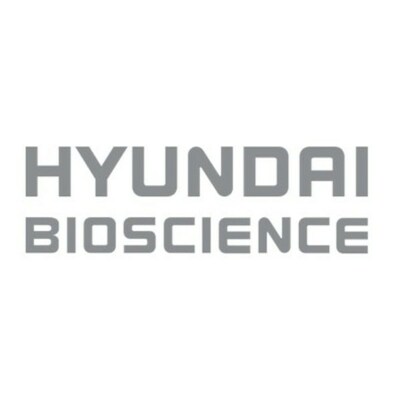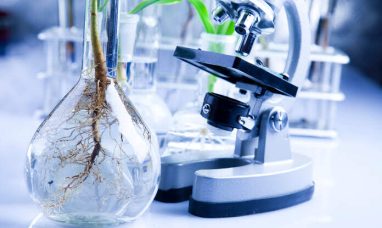SEOUL, South Korea, April 18, 2024 /PRNewswire/ — South Korea’s biotechnology company Hyundai Bioscience (CEO Oh Sang-gi, www.hyundaibioscience.com) announced on April 15 that it would carry out global clinical tests aimed at treating all serotypes of Dengue virus infection.
"The fundamental way to deal with Dengue fever is taking the antiviral drug, which is effective on all four serotypes of the Dengue virus, in the early stage of virus infection," CEO Oh said.
"To win emergency use authorization (EUA), we are planning basket clinical trials in such regions as Mid/South America and Southeast Asia."
After the COVID-19 pandemic is tamed, a mounting number of people are diagnosed with Dengue fever, a viral infection that spreads through mosquitoes.
The number of Dengue patients in 2024 amounts to 3.58 million in the Americas, about three times more than 2023, while those stand at about 8,200 in Thailand and 18,000 in Malaysia.
Dengue deaths have been 758 in Brazil this year. The death toll exceeded 1,030 in Bangladesh last year. Against this backdrop, a host of countries in the Americas and Asia declared a public health emergency due to Dengue.
However, there is currently no treatment for Dengue fever, which was first confirmed in 1953. During the past 70 years, the world has failed to develop Dengue drugs because of the following two reasons.
First, the drug needs to be effective on all four serotypes of Dengue virus (DENV1, DENV2, DENV3, and DENV4). The four Dengue serotypes are different in their genomes and may show differing clinical symptoms after infection. Those who recover from an infection with one Dengue serotype have immunity against that particular one only, and they can be infected with any of the remaining three Dengue serotypes. Worse, subsequent Dengue infections have a higher risk to result in severe Dengue such as Dengue hemorrhagic fever.
Second, Dengue antiviral should be administered in the early stages to properly deal with the Dengue virus. Dengue symptoms typically occur 4 to 10 days after infection. The Dengue virus quickly surges to the highest level in 2 to 4 days from the symptom onset, causing severe cellular damage along with such potential complications as hemorrhage and thrombocytopenia. Symptoms of Dengue fever are similar to those generated by other mosquito-borne Zika and Chikungunya viruses. As it takes time to diagnose Dengue infection in addition to the symptom onset, patients may suffer from severe cellular damage even after they are treated.
Hence, a broad-spectrum antiviral drug effective on all such mosquito-borne viruses is necessary to treat Dengue fever and similar mosquito-borne illnesses.
Hyundai Bioscience has come up with a fundamental way to tackle the difficulties in developing the Dengue drug.
Hyundai Bioscience has succeeded in re-purposing niclosamide, which has been proven to have antiviral efficacy against four serotypes of dengue virus through past in vitro studies.
Despite niclosamide’s broad-spectrum antiviral activity, researchers failed to develop niclosamide-based antivirals due to its low absorption and short half-life. Yet, Hyundai Bioscience tackled the challenges with bio-friendly inorganic substances and polymers based on its proprietary drug delivery system (DDS) technology.
Hyundai Bioscience proved through a clinical test that a niclosamide-based drug, called Xafty®, can safely and effectively treat COVID-19 by shortening the time required to improve COVID-19 symptoms.
In vitro studies showed that niclosamide had antiviral effects against not only four serotypes of Dengue fever but also Zika and Chikungunya viruses.
Recently, Hyundai Bioscience completed the development of a niclosamide-based formulation to treat Dengue fever with a drug concentration level at or above 50% viral inhibition (IC50), which can also work on Zika, Chikungunya, and Yellow fever viruses.
With the new drug, patients with Dengue fever symptoms can be treated early without having to verify whether they are caused by the Dengue virus or other mosquito-borne ones. Such early treatment can also prevent the Dengue viral load from reaching the peak, thus helping patients recover.
In the near future, Hyundai Bioscience plans to initiate clinical studies in America and Southeast Asia with the aim of emergency use authorization. Candidate countries in the Americas are Puerto Rico and Brazil while those in Asia are Malaysia, Thailand, Singapore, and Vietnam.
As niclosamide was proven to be effective in all serotypes of Dengue fever, and the niclosamide-based drug showed its safety through pre-clinical and clinical studies, prompt later-stage clinical development of the Dengue antiviral is possible to receive emergency use authorization.
In particular, Hyundai Bioscience plans to design basket clinical trials to test not only patients of the four Dengue virus serotypes but also those infected with other mosquito-borne viruses, including Zika, and Chikungunya.
"The success of our future clinical study may lead to emergency use authorization as the world’s first Dengue antiviral," Hyundai Bioscience USA CEO Kim Kyung-il said.
"That means that the world will have the first-ever broad-spectrum antiviral drug just like penicillin, which can deal with various bacteria at the same time."
About Hyundai Bioscience
Hyundai Bioscience is a biotechnology company that develops drugs based on its novel drug delivery system technologies to deliver active ingredients safely and efficiently to targeted areas of the human body. Founded in 2000, Hyundai Bioscience focuses on repurposing or expanding indications of existing drugs using its proprietary organic-inorganic hybrid technologies. Hyundai Bioscience is a public company listed on KOSDAQ (symbol: 048410) in South Korea.
For more information, please contact Joobin Jung, Global Marketing Manager (joobin@hyundaibio.com).
![]() View original content to download multimedia:https://www.prnewswire.com/news-releases/global-clinical-development-on-dengue-antiviral-candidate-will-start-hyundai-bioscience-strives-to-win-emergency-use-authorization-302121757.html
View original content to download multimedia:https://www.prnewswire.com/news-releases/global-clinical-development-on-dengue-antiviral-candidate-will-start-hyundai-bioscience-strives-to-win-emergency-use-authorization-302121757.html
SOURCE Hyundai Bioscience
![]()
Featured image: DepositPhotos © JanPietruszka





